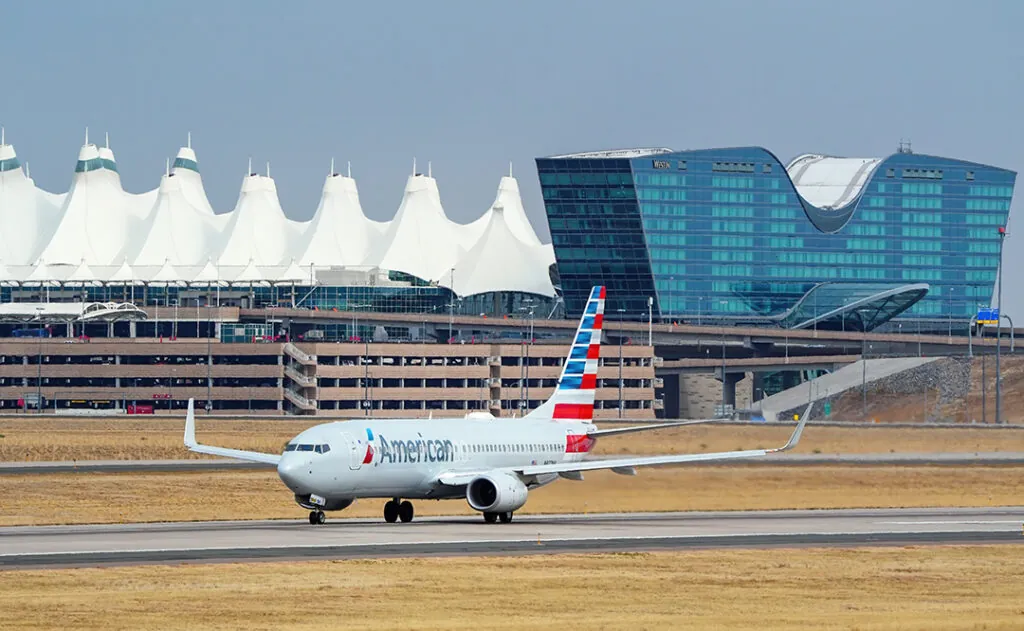The Transportation Security Administration (TSA) has been rolling out facial recognition technology at airports across the United States over the past few years. Billed as a “touchless screening” process, the technology allows flyers to pass through airport security without showing an ID or boarding pass. Instead, facial recognition technology is used to verify travelers’ identities by matching their faces to the photo on their government-issued ID.
For now, participation in facial recognition technology is completely voluntary. Here’s how you can opt-out.
Which Airports Use Facial Recognition Technology?

The TSA has been testing facial recognition technology at numerous airports in the United States over the past year and plans to roll it out at many more locations in the near future.
These are the airports where you can expect to see facial recognition technology in use:
- Baltimore/Washington International Thurgood Marshall Airport (BWI)
- Cincinnati/Northern Kentucky International Airport (CVG)
- Dallas/Fort Worth International Airport (DFW)
- Denver International Airport (DEN)
- Des Moines International Airport (DSM)
- Eastern Iowa Airport (CID)
- Gulfport-Biloxi International Airport (GPT)
- Harry Reid International Airport (LAS)
- Hartsfield-Jackson Atlanta International Airport (ATL)
- Honolulu Daniel K. Inouye International Airport (HNL)
- Jackson-Medgar Wiley Evers International Airport (JAN)
- John F. Kennedy International Airport (JFK)
- John Glenn Columbus International Airport (CMH)
- LaGuardia Airport (LGA)
- Los Angeles International Airport (LAX)
- Louis Armstrong New Orleans International Airport (MSY)
- Luis Muñoz Marín International Airport (SJU)
- Miami International Airport (MIA)
- Mineta San Jose International Airport (SJC)
- Nashville International Airport (BNA)
- Phoenix Sky Harbor International Airport (PHX)
- Richmond International Airport (RIC)
- Ronald Reagan Washington National Airport (DCA)
- Salt Lake City International Airport (SLC)
- San Francisco International Airport (SFO)
- Will Rogers World Airport (OKC)
How is Facial Recognition Used at Airports?
Passengers being screened with facial recognition technology will not have to show their identification or ticket in order to pass through security.
Instead, updated passenger identification scanners utilize biometric cameras capable of facial recognition. These devices match a traveler’s face to their driver’s license or passport photo along with any other photos the government may have on file, and automatically verifies that they are a ticketed airline passenger.
How to Opt out of TSA Facial Recognition
The TSA’s official policy states, “Travelers who do not wish to participate in the facial recognition technology process may decline the optional photo in favor of an alternative identity verification process, which does not use facial recognition technology to verify their identity.”
To opt out of facial recognition at the airport, proceed through the normal security line. Once you reach the checkpoint, there will be a sign indicating that facial recognition technology is being used. If it is being used, all you have to do is politely tell the officer that you would like to opt out. All checkpoints should have clear signage notifying passengers that they have the right to opt out of facial recognition screening.
The TSA officer will then give you a “manual screening,” which is the same process of screening that has been in place at airports for years. The officer will take your identification and match it against your appearance visually. You will not lose your place in line by asking for the manual screening, and it will not take any longer than the facial recognition process. The TSA emphasizes, “The traveler will not experience any negative consequences for choosing not to participate.”
How to Opt-Out if You Have TSA PreCheck
TSA PreCheck passengers are more likely to undergo facial recognition screening than travelers going through standard security lanes. However, the opt-out process is the same—all you have to do is let the TSA officer know that you want to be manually screened.
You Might Also Like:
• Sun, Sand, and a Free Vacation: Win a Trip to Aruba• The Ultimate Guide to Airplane Seatbelt Extenders
• No Appointment Necessary: Global Entry Launches Enrollment on Departure Option
• American Airlines Raises Checked Bag Fees
• Win a Ski and Stay Vacation at Banff Sunshine Village
We hand-pick everything we recommend and select items through testing and reviews. Some products are sent to us free of charge with no incentive to offer a favorable review. We offer our unbiased opinions and do not accept compensation to review products. All items are in stock and prices are accurate at the time of publication. If you buy something through our links, we may earn a commission.
Related
Top Fares From
Today's Top Travel Deals
Brought to you by ShermansTravel
Italy: 8-Night Rome, Florence & Venice...
Infinity Worldwide Vacations
 vacation
$2335+
vacation
$2335+
Athens to Venice: 9-Night Cruise w/Choice...
Windstar Cruises
 cruise
$3999+
cruise
$3999+
Ohio: Daily Car Rentals from Cincinnati
85OFF.com
 Car Rental
$19+
Car Rental
$19+




